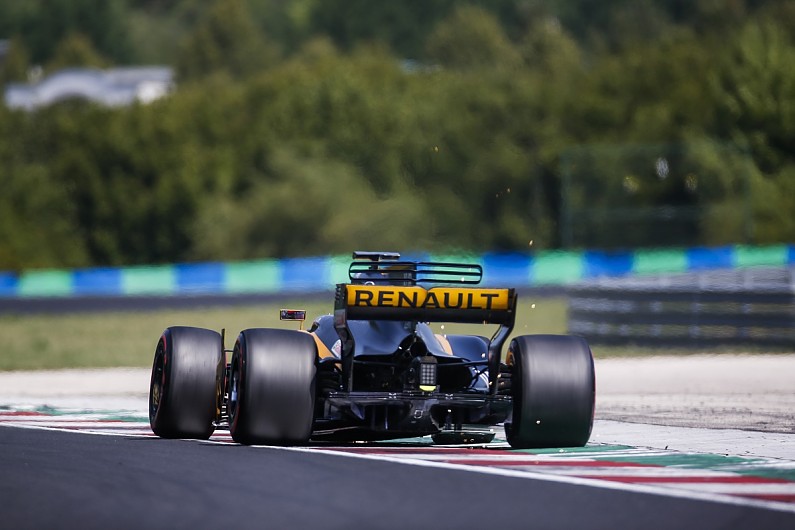These are exciting times for the Formula 1 world, with the plans being drawn up for 2021 and beyond, with a clear-ish picture of the engine regulations – they seem to be deliberately vague, to stop the big manufacturers getting too much of a head start in the development process, while offering enough to allow newcomers to make the all-important decision to get involved. Announcements are also coming (at the time of writing) about the future financial structure of the sport. The World Championship of 2017 is done but there is still one area where important decisions need to be made: track limits.
It is not against the rules to go off the road but if drivers do cross the white lines they find themselves in a big gray area, where decisions become rather arbitrary and penalties are imposed if the driver is seen to be “gaining any lasting advantage”.
There is the possibility that the drivers may give back any advantage gained from leaving the track. But what exactly is “a lasting advantage”? This is all left to the discretion of the race director. In Austin this problem reared its ugly head when Max Verstappen was deprived of a well-deserved podium after he passed Kimi Raikkonen’s Ferrari on the last lap with all four wheels over a white line. One cannot fault the decision of the stewards if one follows the rules to the letter, but there is no doubt that the five-second penalty that knocked Verstappen back to fourth place ruined the spectacle and upset fans. It was a head-on collision between the ‘let them race’ mentality and the ‘rule of law’ mindset. The FIA argues that it must uphold the rules, while the more flamboyant racers argue that the drivers should be allowed to race flat out, as they are there to put on a show.
Both parties are right and both are wrong. It is a question of perception and reality. To blow Verstappen’s fantastic overtake out of the water may be correct, but it ruined the show – and was not what F1 really wanted. According to various online surveys, half the fans were for the punishment and half were against it. There was a kerfuffle in the days that followed, largely because Verstappen and Red Bull Racing were so outraged that they said things which were a little over the top. They are racers, emotional and passionate types. The question of how to deal with track limits was much in discussion, but no solution was found. Perhaps, some argued, it would be best to go back to grass and gravel…
One of the problems is that the drivers have not really been allowed much say in the matter. They would, for example, be absolutely opposed to the idea that their engines might be electronically slowed if they crossed the line. This, they argue, would be dangerous. Tom Kristensen, the FIA Drivers’ Commission chairman, is a clever man and has been quietly campaigning to have a definitive solution to the problem of track limits, with the drivers being involved.
Interestingly, Kristensen was the driver steward in Mexico where we had another case of a decision that could be deemed right or wrong. Sebastian Vettel ran into the back of Lewis Hamilton at the third turn of the Mexican Grand Prix. There was some doubt over whether it was deliberate or accidental. Kristensen reckoned it was accidental. Other drivers, including Mercedes F1 chairman Niki Lauda, agreed. But Hamilton suffered a right rear puncture and lost time. Vettel too lost time, but was less affected than Hamilton. Vettel was clearly to blame, Hamilton was the victim and in the past similar mistakes have been punished.
If one argues in favor of the “let them race” school of thought, such bingles should be left unpunished, unless they are clearly deliberate and so one can argue that Mercedes must just accept what happened and get on with it. But then was it really fair? After the race, with the championship in his pocket, Hamilton said he didn’t care. But what if Hamilton’s car had been more damaged and Vettel had managed to keep the World Championship alive? That would have been “a lasting advantage”, to borrow the phrase from the track limits discussion. Vettel’s mistake went unpunished and one was left with the impression that the stewards in Mexico did not want to fall into the trap into which their colleagues in Austin jumped feet first. They didn’t want to ruin the show, or be seen to interfere with the World Championship… Once the question of intent was decided, was it right to let Vettel go unpunished? He made a mistake and while he paid for it, Hamilton paid for it more. Is that right?
It’s easy for us to have our opinions in such matters, but is there a way for absolute fairness? Or must we be like soccer and accept that sometimes referees make mistakes?
Submitted by PMW Columnist, Joe Saward



